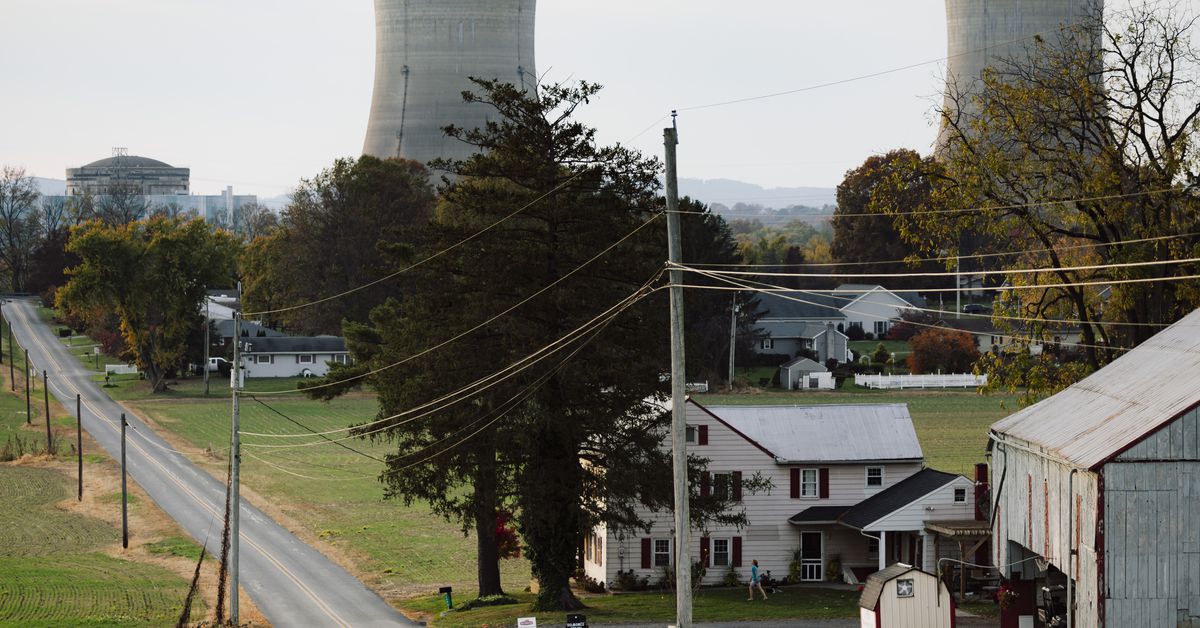A New Era for Nuclear Energy in the United States
The General Services Administration (GSA) has recently announced a significant nuclear energy contract, marking a new era for the industry. This development comes on the heels of major tech companies making substantial investments in nuclear energy last year.
The Contract Details
- Duration: 10 years
- Value: $840 million
- Electricity supply: 10 million megawatt-hours, equivalent to powering over 1 million homes annually
- Nuclear energy allocation: Approximately 4 million megawatt-hours, with the remainder from other sources such as hydro, wind, and solar power
The GSA awarded the contract to Constellation, which operates the largest nuclear fleet in the nation. This company has recently announced an agreement with Microsoft to restart a nuclear reactor at Three Mile Island.
The Growing Demand for Nuclear Energy
Silicon Valley is increasingly turning to nuclear energy to meet the growing demand for electricity from AI data centers. As the federal government is the largest energy consumer in the nation, this contract is a significant boon to the nuclear industry.
A Shift in Attitude Towards Nuclear Energy
The agreement between Constellation and the GSA marks a shift in attitude towards nuclear energy. In the past, it was often excluded from corporate and government sustainable energy procurements. However, with the growing demand for clean energy sources, this is no longer the case.
Joe Dominguez, Constellation’s president and CEO, stated, "This agreement is another powerful example of how things have changed. Frustratingly… nuclear energy was excluded from many corporate and government sustainable energy procurements. Not anymore."
Constellation’s Commitment to Clean Energy
Constellation generates 10 percent of the nation’s carbon pollution-free energy. A majority of its output comes from nuclear energy, but it also produces hydro, wind, and solar power. The company has set a goal of reaching 100 percent carbon-free electricity by 2040.
Breakdown of Electricity Sources in the Contract
The GSA and Constellation declined to provide information on how much of the electricity included in the contract will come from each source aside from nuclear power plants.
A Historic Procurement for the Federal Government
This contract is the largest energy procurement deal signed by the GSA in its history. The agency’s administrator, Robin Carnahan, stated, "This historic procurement locks in a cost-competitive, reliable supply of nuclear energy. We’re demonstrating how the federal government can join major corporate clean energy buyers in spurring new nuclear energy capacity and ensuring a reliable, affordable supply of clean energy for everyone."
Additional Capacity and Investments
The contract will allow Constellation to extend licenses for existing nuclear power plants as well as invest in new equipment and technology. This should result in 135 megawatts of additional capacity. The GSA agreed to purchase 2.4 million megawatt-hours of electricity from that added capacity over 10 years.
Impact on Other Agencies
Outside of GSA buildings, the deal also extends to 13 other agencies, including:
- Department of Veterans Affairs
- Department of Transportation
- Federal Bureau of Prisons
- National Park Service
- Social Security Administration
- US Mint
Locking in Affordable Prices
The GSA is framing the contract as a way to lock in more affordable prices, particularly in light of increasing electricity demand from data centers and AI facilities. By keeping their electricity costs fixed for 10 years, federal agencies will have budgetary stability and protection from future price increases.
A Key Part of the Biden Administration’s Plan
The nuclear energy deal is part of a broader plan to transition the US away from fossil fuels and towards clean energy sources. The Biden administration has made significant investments in nuclear energy, including a $1.52 billion loan to help restart a retired nuclear generating station in Covert Township, Michigan.
Previous Investments in Nuclear Energy
In recent years, several major tech companies have made substantial investments in nuclear energy. These include:
- Meta
- Amazon
- Microsoft




